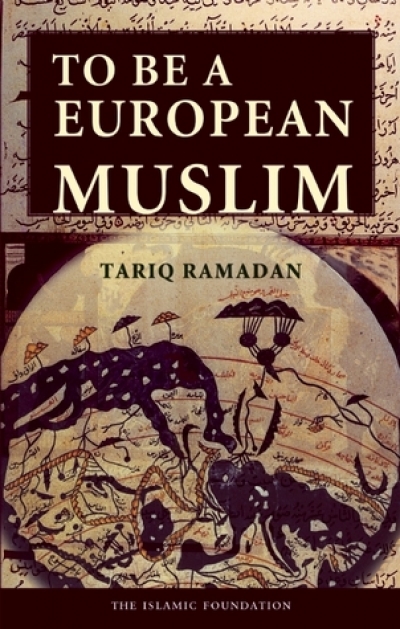



 Iqbal Siddiqui
Iqbal Siddiqui
To be a European Muslim by Tariq Ramadan. Pub: The Islamic Foundation, Leicester, UK, 1999. Pp: 272. Pbk: £5.95.
Estimates of the numbers of Muslims in western Europe vary so wildly that it is difficult to quotew a single figure. But what is indisputable is that there are now substantial Muslim communities in virtually every European country, and large ones in many, including Britain, France and Germany.
These communities consist of Muslims originating from different parts of the world, with different cultural backgrounds, belonging to different socio-economic classes, and confronting different circumstances depending on the country they are in, the nature and policies of the government there, and numerous other imponderable variables. All Muslim communities are also getting younger, with an ever greater proportion of their members young people born and brought up in the west rather than having immigrated from other parts of the world. (I am thinking here primarily of the Muslim communities of western Europe rather than the indigenous Muslim communities in central and eastern Europe.)
There are, moreover, also growing numbers of indigenous converts (or reverts, as some prefer to call themselves) to Islam in all European countries. These ‘new Muslims’ also come from every sector of the non-Muslim community, and are attracted to different ways of practising their Islam, adding wonderfully to the diversity of experience of the Muslim Ummah in Europe.
Some argue proudly that these new Muslims make Islam the ‘fastest growing religion’ in the west, but this is to ignore the considerable numbers of young Muslims, born of Muslim parents, usually economic immigrants from Muslim countries, who effectively drift away from Islam and the Muslim community (I hesitate to say they cease to be Muslim) simply because they are not properly taught the true meaning and practice of Islam.
What is indisputable, however, is that the Muslims of western Europe face many problems and issues which are virtually unprecedented in Muslim history and experience. Inevitably, this has led to many different approaches to the problem, some based on understandings of Islamic principles, others merely looking to them for justification; some expressed in institutional terms, others informally through people’s actions, and others in theoretical books and papers.
Tariq Ramadan’s new book, published by the Islamic Foundation in Leicester, UK, one of the oldest and best-established Muslim institutions in Europe, takes a theoretical approach, trying to draw on Islamic principles to find guidance for Muslims today. This is, of course, an essential part of any approach; unfortunately, Ramadan – a philosopher by profession and evidently by inclination – fails to combine it with a realistic assessment of the harsh realities facing Muslims. Ironically, in the first part of his book, he warns Muslims against precisely this error on the part of conservative ulama, before falling into it himself.
Ramadan’s approach is based instead on two-dimensional understandings of both Islam and the west based on written sources: books, laws, bills of rights and – in particular – theories of democracy. Any student of real people and societies knows that realities seldom reflect the theories. The reality of Muslim life in Europe is not that there is freedom of religion, but that secularism is aggressively taught in schools; yet issues such as the hijab ban in France find no mention in this book. The reality is not that there is freedom of speech, but that Muslims in Britain were vilified for defending the Prophet’s honour in the Rushdie affair. The reality is not of equal citizenship, but of widespread Islamophobia and discrimination, which is not even illegal in some countries, such as Britain.
Ramadan also fails to understand that the Muslim position in the west is inseparable from that of the Ummah’s relations with the west at a global level. As long as the Islamic movement fights western hegemony in Muslim lands, Muslims in the west will be seen as the enemy within. This is a reality which we must face up to and we must learn to live with. Leaders and intellectuals who cannot accept this reality, and persist in ignoring it, can and will provide no answers to our problems.
